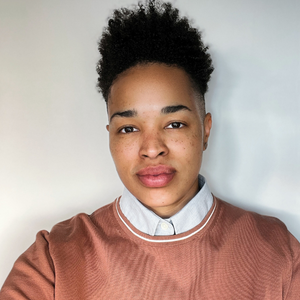Beyond Kamala Harris: Elevating More Black Women to Leadership
 Now that U.S. Vice President Kamala Harris’ election represented a milestone for women, black women and Asian-American women alike, let’s call for momentum.
Now that U.S. Vice President Kamala Harris’ election represented a milestone for women, black women and Asian-American women alike, let’s call for momentum.
Because if organizations are not focusing on elevating significantly more black women to leadership positions, they are likely failing to do so.
Black women face compounded discrimination in the workplace with intersecting gender and racial identities—so while among the fasting-growing entrepreneurs, at least pre-pandemic, black women still struggle to pierce corporate leadership’s glass ceiling.
For how much longer will a lack of diversity results continue to reflect corporate commitment to holding onto homogeneousness in leadership?
The Conversation Is Finally Happening, But It Can’t Stop There
Former Senator Kamala Harris, a black woman and woman of Asian descent, broke new ground as the first woman to become U.S. Vice President. Though highly visible for all in the spirit of “if you can see it, you can be it”, a real shift will be evidenced when she is not an exception, and black women are prominent in influential leadership.
While the sociocultural conversation of 2020 focused on Black Lives Matter, the C-Suite conversation is arriving to the reality that black leadership matters—inducing financial and reputation-based reverberations for companies that continue to fail to move diversity beyond lip-service to a quantifiable reality.
In a commitment to accelerate efforts towards racial justice and equality, McKinsey Academy launched the Black Leadership Academy, with a Management Accelerator program and a Black Executive Leadership Program, to support progression to both senior leadership and C-Suite roles.
Several companies—such as Amazon, Uber, Microsoft, Salesforce, Facebook, Apple, and Google—vowed to significantly increase investment in black leadership and diversity, as well as made tangible commitments to % increases in representation.
Black Women Face Specific Challenges at Work
When we only talk about “women leaders” or “black leaders”, we are missing the point that black women are often sidelined in either discussion—either white women or black men often become the feature players.
Lean In released a report called “The State of Black Women in Corporate America,” which details the challenges and obstacles that black women specifically face—these, in effect, include underrepresentation, lack of support and access, day-to-day discrimination and unrealized, discouraged ambition.
Underrepresented and Undermined
75% of black women identify as ambitious towards their career, while 40% seek to attain a management position within the next five years. But while 37 women lead Fortune 500 firms, none are black, and while 21% of C-Suite leaders are women, only 1% are black women.
Less than 1% of Fortune 500 CEOs are black, with a total of only 18 Black CEOS across the past two decades—Ursula Burns was the only woman among them.
Whereas black women make up 7.4% of the U.S. population, they hold only 1.6% of VP positions and 1.4% of C-Suite positions. White men, however, make up only 35% of the U.S. population and dominate 57% of VP positions and 68% of C-Suite positions.
For every 100 men hired into manager roles, only 64 black women are. Black women request promotions at the same rate as men, but for every 100 men promoted to manager, only 58 black women are.
“The culture of promotion can also exclude qualified black candidates,” writes Jeanne Sahadi, “who may not be part of the social networks that board members and CEOs often use to vet a candidate.”
Black women are both the most educated and the fastest-growing group of entrepreneurs in the U.S., owning 21% of all women-owned businesses and with above average growth rate.
However, between 2009-2018, less than .0006% of venture capital went towards black women-led startups. And black women still earn 62 cents for every dollar earned by white men, compared to 82 cents on average for women.
Not only are black women underrepresented, but when they overcome obstacles to achieve success, their accomplishments are often attributed to external factors. This undermines recognizing black women for their talent, competency, hard work and hard-earned credit of their successes.
Less Support and Access to Leadership
Lean In points out that in a survey of U.S. law firm employees, “62% of women of color with some level of mentorship said the lack of an influential mentor was a barrier to their advancement; only 30% of white men said the same.”
Only 24% of black women say they have the sponsorship needed to advance their career, compared to 30% of women and 33% of men. Black women are less likely to feel their managers help navigate organizational politics, advocate for opportunities for them, or provide opportunities to showcase their work—with affinity bias likely playing a big role. Also, while 80% of white women and men see themselves as allies, less than half of black women feel they have strong allies behind them.
Meanwhile, employees with steady manager support are both more likely to be promoted and to believe they have the same opportunity to be promoted.
When it comes to leadership access, black women are least like to have a substantive interaction with a senior leader—41% never have, versus 27% for all men and 33% for all women. An even greater gap exists with casual interactions with a senior leader—59% never have, versus 40% for all men and 49% for all women.
Perhaps it’s no surprise that research has shown the attrition rate of black professionals in general is higher, with a third intending to leave their company within two years.
Emotional Tax of Daily Discrimination
Between the regular experience of microaggressions and often being the “only” black women in the room, black women pay a lot of emotional tax in the workplace.
“I learned at an early age to silence myself when it came to race, and it was at the expense of my own well-being,” says Minda Harts, CEO and founder of The Memo LLC, a career development company for women of color—as well as author of The Memo: What Women of Color Need to Know To Secure a Seat at the Table, who now encourages women to speak about these inequalities.
Lean In reports that black women are more likely to have to provide more evidence of their competence (40%, versus 30% of all women). And while one in ten white women have the experience of someone expressing surprise about their language skills or abilities, one in four black women suffer this microaggression. Women who regularly experience microaggressions think about leaving their job three times as much.
54% of black women often experience being the “only” one of their racial gender identity in the room. Black women who have this “only” experience are more likely to feel closely watched than other women in that circumstance (41% vs. 23% of all women, 10% of white women), on guard (40% vs. 25% of all women, 15% of white women) and pressured to perform (49% vs. 32% of all women, 11% of white women).
Not only that, but black women who are the “only” one are way more likely to feel their personal actions reflect on others like them (50% vs. 30% of all women, 9% of white women), aware they are seen as representatives of their race and gender.
“You have an added burden to succeed,” testified Mary Winston, formerly interim CEO of Bed, Bath and Beyond. “If you don’t, you know there won’t be another one like you for many years to come.”
Unrealized, Discouraged Ambition
Black women are earning more degrees than any other group and are as likely as white men (more likely than white women) to be interested in top executive positions, with increased desire to positively influence company culture and be a role model.
This very willingness to lead can work against black women in a double bind of the communal expectations of women, so that they suffer an ambition penalty.
Over the last 40 years, only 13% of black women Harvard MBAs have reached the most senior executive ranks, whereas 40% of non-African-American Harvard MBAs have.
Black professionals of any gender who do reach the C-Suite are rarely given the roles with high advancement potential, such as profit-and-loss positions, and more likely to be placed in marketing, human resources and administration.
The other reality is that those in power are less likely to validate the issue: a Boston Consulting Group survey indicated that while 43% of black colleagues observed obstacles to advance for people of color in their workplace, only 19% of white men above 45 years felt those obstacles existed.
Organizational Action to Support Black Women To Leadership
The Lean In authors suggest three key actions for companies to address obstacles to leadership for black women—in effect, make the advancement of black women a priority, address bias in both hiring and promotions and create an inclusive workspace.
Make Supporting Black Women a Specific Objective
As black women represent both racial and gender diversity amidst the false construct of default white male leadership, they often fall through the gaps, so the commitment to advancing black women in particular must be intentional.
Supporting black women to advance requires specific and measurable targets— in the consideration pool, in hiring and in promotion, in succession and in retention, but also in mentorship and sponsorship.
The progress against these measures should be visible and diversity targets attached to accountability in performance reviews and financial reward.
Reducing Bias in Hiring and Promotions
Diversity needs to begin with having black women (not just one black woman) represented in the pool of candidacy, as research has shown that a woman, or a black woman, has zero statistical chance of being hired if alone in a pool of finalists.
Beyond insidious bias awareness is training and tools to mitigate that bias, objective checks throughout the process (eg anonymous resume review), and use of technologies that provide truth-telling data and remove levels of bias to level the playing field.
Inclusive Workplace
Finally, organizations need to intentionally cultivate more inclusive workplaces, that reduce the emotional tax for black women, while providing the same casual support and access others receive.
This includes real guidelines to inclusive culture as well as training on anti-racism and allyship beyond affinity bias. It also means reducing the “only” experience for black women so it’s no longer the norm, and addressing the casual and nuanced ways that black women still fail to be invited into network and leadership access.
The conversation of black leadership, and particularly black women leadership, is now glaringly open and on the table. The question is which organizations will carry the talk through to character and action, until our leadership actually fully embodies the results of that commitment.
By Aimee Hansen








